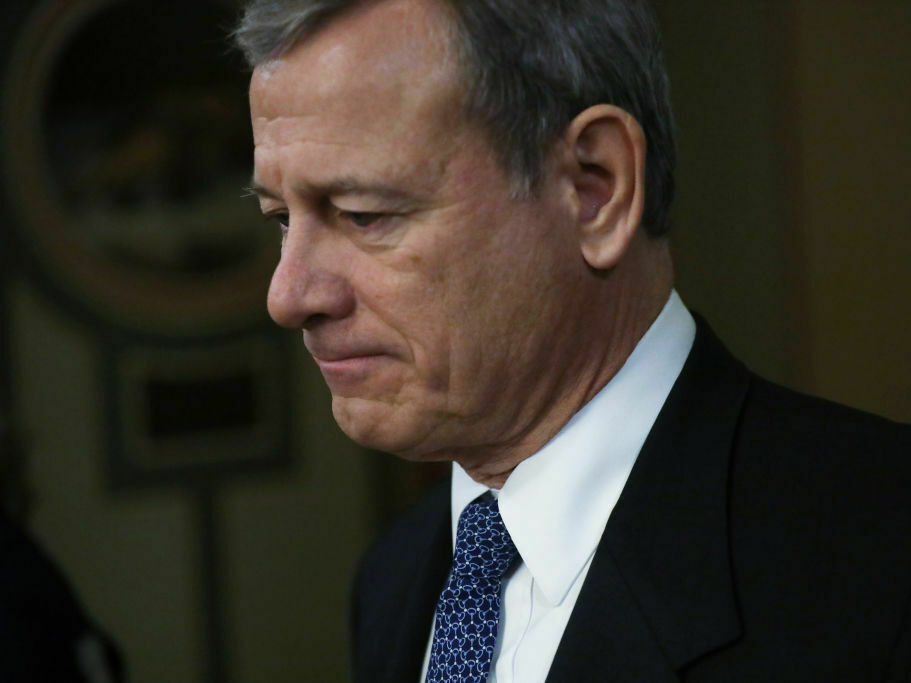[ad_1]
Chief Justice John Roberts says he will not testify before a Senate panel investigating judicial ethics.
Alex Wong/Getty Images
hide caption
toggle caption
Alex Wong/Getty Images

Chief Justice John Roberts says he will not testify before a Senate panel investigating judicial ethics.
Alex Wong/Getty Images
Chief Justice John Roberts declined an invitation from Senate Judiciary Committee Chairman Senator Dick Durbin (D-Illinois) to testify before the panel, stating that such testimony by the Chief Justice was “very It is rare,” he said.
A Senate panel will hold hearings on May 2 to consider what Durbin calls a “common sense proposal” to hold Supreme Court judges to the same ethical standards as the rest of the federal judiciary. and Durbin invited Roberts to be “or his agent”. join.
“As expected in light of the issue of separation of powers and the importance of maintaining judicial independence, testimony by the Chief Justice of the United States before the Senate Judiciary Committee is extremely rare,” Roberts said. wrote in response to the invitation.
In a subsequent statement, Durbin said, “Without doubt, ethical reform of the Supreme Court must take place regardless of whether the court participates in the process.” Such a reform effort is unlikely to get enough support in Congress.
In response to Roberts’ letter, Gabe Ross of the legal watchdog group Fix the Court said:
“Roberts here has demonstrated a serious inability to rise to the occasion, and our country is worse off from it,” Ross said.
A scheduled congressional hearing has raised questions about Judge Clarence Thomas’ business dealings and the lavish vacations he and his wife were paid for by his friend and Republican mega-donor Harlan Crow. Following a series of news reports.
In his letter, Roberts said only two chief justices had ever testified before Congress, and in each case the testimony was about what he called “mundane matters.”
Accompanying the letter is a 2 1/2 page statement on ethical principles and practices, Roberts said all current judges “reaffirm and restate today.”
According to the document, judges are trying to abide by the code of conduct followed by lower courts. That said, in the name of security and other reasons, we make various exceptions to the transparency rule.
Since 1991, judges have followed financial disclosure requirements regarding gifts, outside income, outside employment, and more. These reports are supposed to disclose, among other things, judges’ non-governmental income, investments, gifts, and reimbursements from third parties. Roberts noted that just this year, the Judiciary Council tightened some of its disclosure requirements, including requiring the disclosure of free air travel and gifts from friends that were exempt in the past.
Nonetheless, the Ethics Statement signed by all judges states that “individual judges, not courts, decide the issue of challenge”. As the Ethics Statement puts it, “When an entire court, or part of a court, considers the dismissal decisions of individual judges, who the court chooses among them can influence the outcome of the case.” Members can participate.”
Finally, the Ethics Statement points to the importance of security, as judges face increasing threats and issues such as travel accommodation and disclosure may have to sit behind security. Note that there is.
In a statement, Durbin said, “The Supreme Court justice’s recitation of existing legal ethical standards suggests that the current law is adequate and ignores the obvious. One judge’s actions, including traveling on yachts and private jets, led that same judge to order the sale of property he partially owned before the Supreme Court. failed to disclose to a party
[ad_2]
Source link


